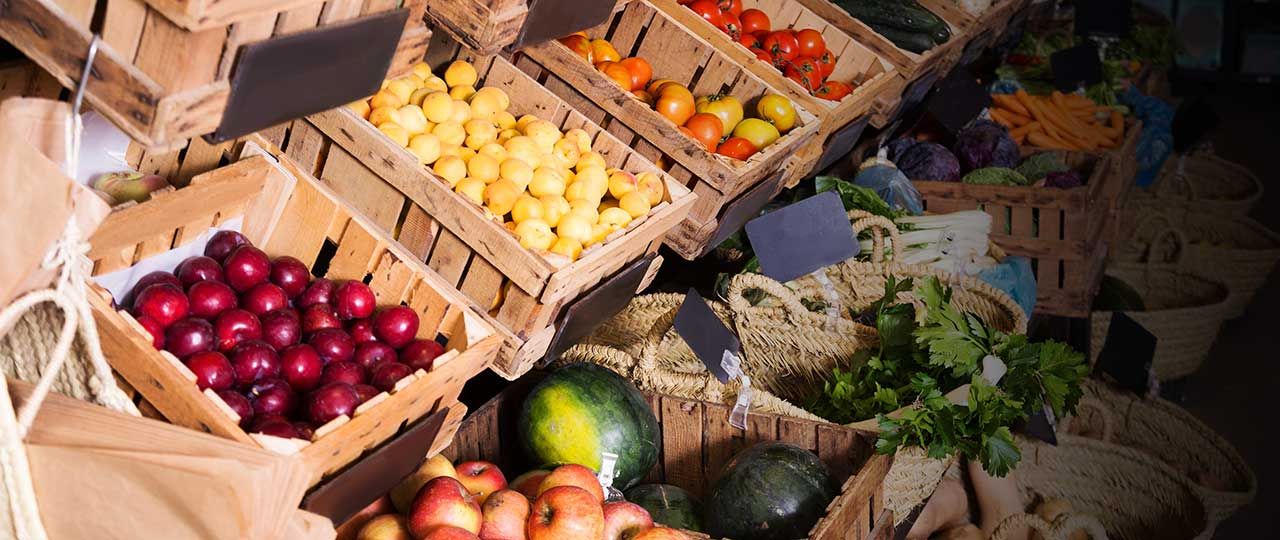
Stephanie McMahon
Head of Research


Head of Research
Boosts house value
High streets with personality, which have a range of independent stores and host regular events can have a positive impact on the desirability of your home, with some research even suggesting a strong link between attractive local high streets and house prices.
As we all know - and are constantly reminded - location is key when buying a home. And while location can cover a multitude of aspects from proximity to major roads and position in relation to the sun, one of the most important things to consider when choosing the right location is local amenities.
We’re a time poor society and so having great shops, cafes, restaurants and more on our doorstep is a priority. But more and more it’s about having interesting versions of these that matters, with our desire for generic chain stores dwindling.
A study from American Express High Streets Ahead found that homes near high streets full of prospering small traders rose in value by £40,000 between 2003 and 2013 - 17% higher than in comparable areas with proportionally fewer independent traders. This shows how supporting local businesses is not just an investment in them, but also in you.
In our Housing Futures report in 2016, we identified a group of people moving towards amenity-rich villages with strong High Streets as ‘Rubies’ – or Rural Newbies. These are young families looking for a rural life but who also want the varied amenities of larger centres, so are willing to support and sustain local shops.
And these boutique shops, local art galleries and non-chain restaurants are important to them when choosing where they’ll live with 54% putting access to good shops and amenities as a top consideration, up from 39% in 2014.
This is reflected in places like the Essex seaside town of Leigh-on-Sea. Rightmove recently judged this to be the happiest place to live in the UK. One of the reasons people were happy living here was the access to restaurants and pubs – it was rated best in the UK in this category. And the effect on house prices? A 15% increase in asking prices in Leigh-on-Sea between 2015 and 2016 to an average of £384,439.
Gives you more things to do
While there’s plenty to see and do in big city centres, it’s often the nearby towns and local high streets that have something a bit different to entertain you - from independent theatre to regular markets. But these events only continue with local support.
Gone are the days when the only theatre you’d catch in small towns was panto, and your local market consisted of five stalls selling Tupperware. These days, small towns and villages are a hot bed of activity and events – but they can only continue with local support, attendance and word of mouth.
Supporting local events and business can have a big impact on the local economy, with research from councils showing that for every £1 spent on an independent small business or at a local event, 63p stayed in the local economy, compared to 40p with a larger business.
And by supporting local events you not only help them to continue in the future, but you’re also supporting local talent. Spending your hard earned cash at a local market - instead of a supermarket - means you’re providing a career for what could be the next big talent – whether that’s a chef, designer or band. Local events provide such people with constant feedback from the customers about their product, helping them to fine tune it and make the most of their talents.
Millennials are embracing this ethos, going further than just visiting and buying goods from local markets and events, but also sharing their finds across social media. This gives local artisans free advertising – and word of mouth is one of the most effective ways of showcasing goods.
The events can also act as a support network in themselves, with cafés, book shops and craft centres often holding events to drum up business and support local groups from knitting clubs to social enterprises doing good work in the community.
Returning to the happy town of Leigh-on-Sea, it was helped to Rightmove’s top spot due to its access to sports and arts activities and opportunities to develop skills. While another Essex town, Standford-le-Hope, scored top in the Rightmove survey for community spirit. It should be no surprise that this community spirit has boosted its house prices with the average home going for £303,121, compared to neighbouring Corringham, which had an average of £283,263.
Focus on the issues important to you
Going local not only helps support local shops and events, but puts local issues to the fore. And it’s not just about sorting the rubbish collection – if you embrace your area you can impact everything from energy policies to planning laws.
Getting involved in your local community can pay dividends by helping you to tackle the issues that are important to you. You can do this is smaller, focussed communities more effectively than you can in large cities, where local issues can often take a back seat to larger policies.
Take, for example, Transition in Action in Totnes. This was the UK’s first comprehensive Energy Descent Action Plan designed for and by the local community. The aim is to get the whole community less reliant on fossil fuels. It was created through a series of local workshops, talks to local groups, research and a local-focussed Energy Budget.
This shows that when a local community unites, it can tackle what are often seen as national issues – like energy - on a local level.
Another example is the Awel Community Energy Coop in Swansea. The group raised over £1.3m from a community share offer to support the work of a local charity tackling fuel poverty.
But the issues don’t have to be as large – they could be something that’s important to you personally. In Ilford, the local Salvation Army helped set up Recycles Club, where locals worked with trained bike mechanics to recycle bikes ready for sale. This helped locals to develop their skills to secure employment, and contribute to their local community.
Another London-based project is ReSpace. This is a network of local architects, urban planners, environmentalists, academics, community groups and policy makers that are focussed on creating a more sustainable future that supports local communities.
And that’s not even mentioning local politics. What is often seen as a dry subject can become a lot more enticing when you’re faced with problems that affect you directly, whether it’s traffic, local schools or the state of your nearest park. Local councillors are a lot more accessible and open to suggestions than national MPs, and you can find that engaging them can sometimes result in actual action.